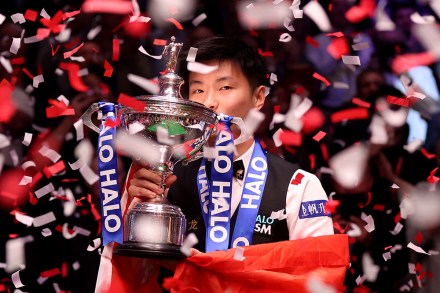The unorthodox appeal of the Shergar Cup
With DJs and MCs inviting the crowd to dance on the parade-ring steps as if they were on a beach in Ibiza, and hectoring them into shouting ‘Yay’ or ‘Neigh’ to racing quiz answers, Ascot was a different place last Saturday – Dubai Duty Free Shergar Cup day. Grimacing traditionalists would have been stamping on their Panamas. But the traditionalists don’t come. Shergar Cup day, a series of team races between groups of three jockeys representing Europe, Asia, Great Britain and Ireland and the Rest of the World, is aimed at a different crowd and it simply doesn’t matter that it’s as artificial as a plastic Gruffalo. It’s an informal




















